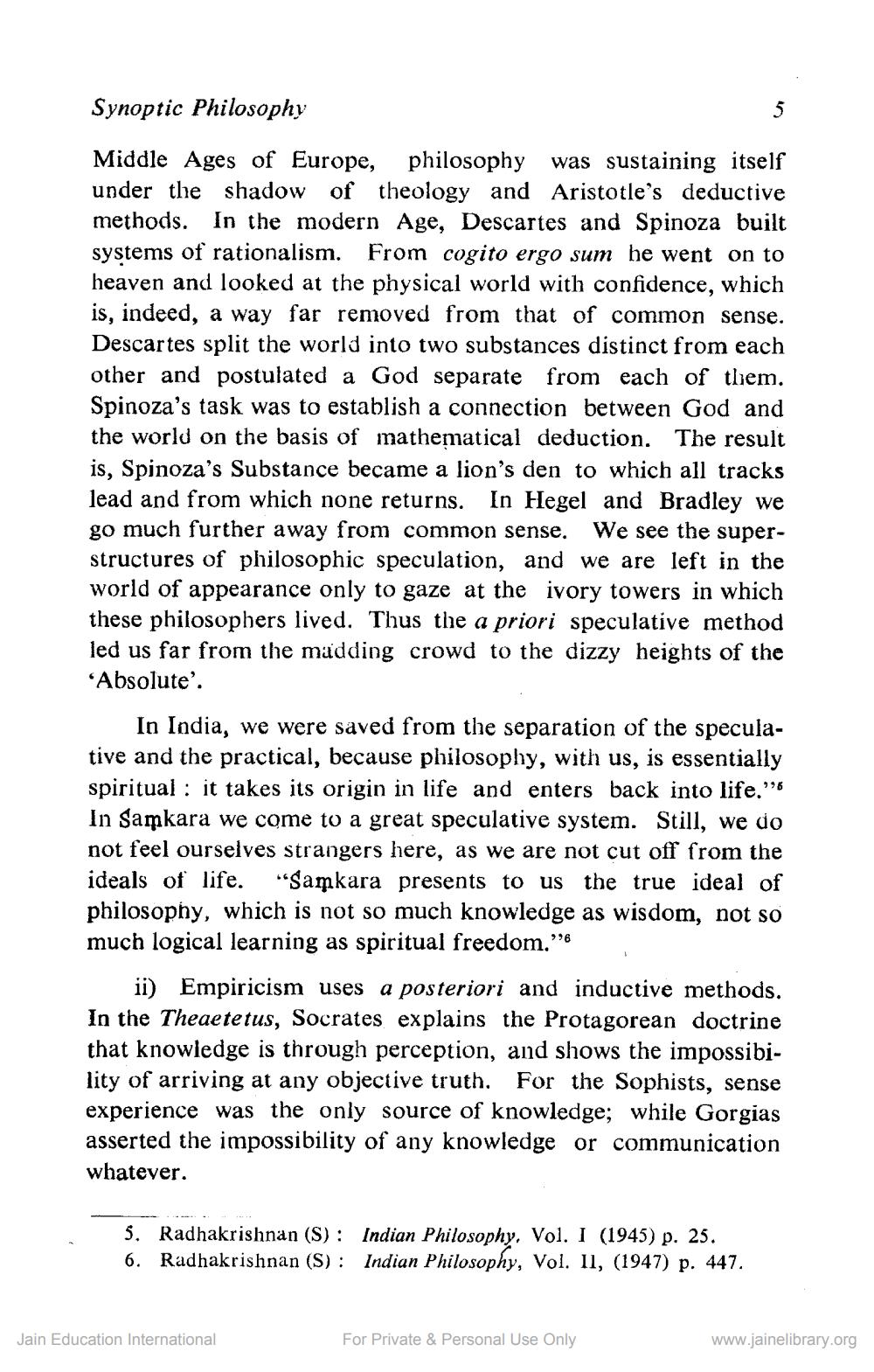________________
Synoptic Philosophy
Middle Ages of Europe, philosophy was sustaining itself under the shadow of theology and Aristotle's deductive methods. In the modern Age, Descartes and Spinoza built systems of rationalism. From cogito ergo sum he went on to heaven and looked at the physical world with confidence, which is, indeed, a way far removed from that of common sense. Descartes split the world into two substances distinct from each other and postulated a God separate from each of tliem. Spinoza's task was to establish a connection between God and the world on the basis of mathematical deduction. The result is, Spinoza's Substance became a lion's den to which all tracks lead and from which none returns. In Hegel and Bradley we go much further away from common sense. We see the superstructures of philosophic speculation, and we are left in the world of appearance only to gaze at the ivory towers in which these philosophers lived. Thus the a priori speculative method led us far from the madding crowd to the dizzy heights of the 'Absolute'.
In India, we were saved from the separation of the speculative and the practical, because philosophy, with us, is essentially spiritual : it takes its origin in life and enters back into life." In Samkara we come to a great speculative system. Still, we do not feel ourselves strangers here, as we are not cut off from the ideals of life. "Samkara presents to us the true ideal of philosophy, which is not so much knowledge as wisdom, not so much logical learning as spiritual freedom.”6
ii) Empiricism uses a posteriori and inductive methods. In the Theaetetus, Socrates explains the Protagorean doctrine that knowledge is through perception, and shows the impossibility of arriving at any objective truth. For the Sophists, sense experience was the only source of knowledge; while Gorgias asserted the impossibility of any knowledge or communication whatever.
5. Radhakrishnan (S): Indian Philosophy, Vol. I (1945) p. 25. 6. Radhakrishnan (S): Indian Philosophy, Vol. II, (1947) p. 447.
Jain Education International
For Private & Personal Use Only
www.jainelibrary.org




